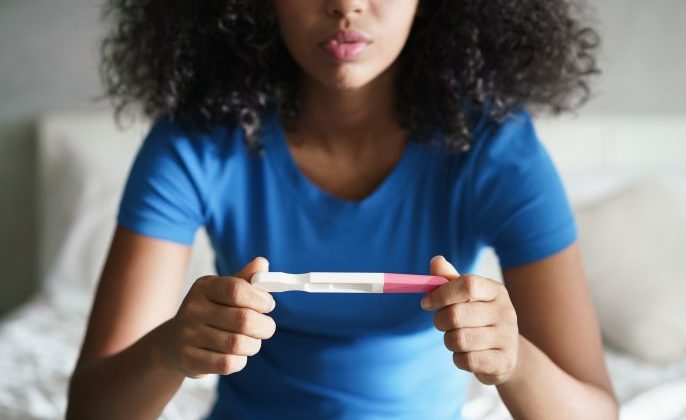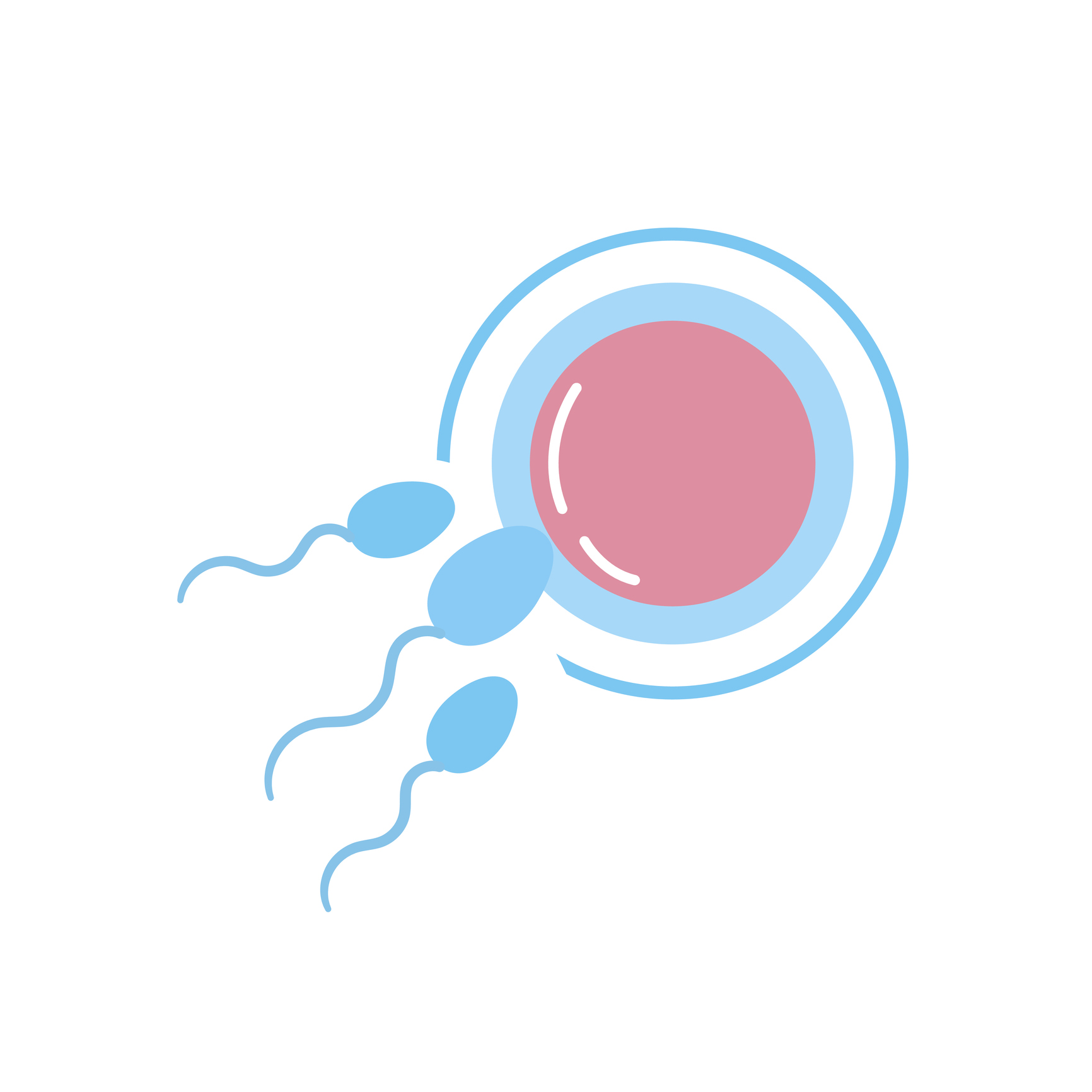Pregnancy
Pregnancy is how the human species reproduces itself. Your reproductive system is designed to unite a sperm with an egg, with the chance of the partner with a uterus becoming pregnant and then carrying a baby.
How does pregnancy happen?
Often, pregnancy begins after someone with a penis ejaculates (or comes) while having PIV (penis in vagina) sex. However, ejaculating on the vulva may also lead to a pregnancy, since sperm can still get inside the vagina. Pre-come (fluid that leaks out of the head of the penis before ejaculation) usually also contains some sperm. This means that it is still possible for someone to become pregnant even if no one ejaculated (or came) inside of them. This is part of the reason why the pull out method is not effective as birth control.
Under a microscope, sperm look like tiny tadpoles. They use their tails to move quickly through fluids. After getting into the vagina (through one of the ways mentioned above), sperm will try to travel up the vagina, through the cervix, through the uterus, and into a fallopian tube. If there is an egg in the fallopian tube, a sperm may reach it, enter it and fertilize it. Sperm can hang out in the vagina, uterus or fallopian tubes for 3-5 days, waiting for a chance to fertilize an egg.
About a day later (still in the fallopian tube), the fertilized egg may begin dividing and become a zygote. Over a few days, the zygote keeps splitting into more and more cells. Then, it begins traveling down the fallopian tube toward the uterus. Before it reaches the uterus, it transforms from a zygote into a blastocyst. This is a hollow ball of cells. When the blastocyst reaches the uterus, it might attach to the wall of the uterus. This is called implantation. It is only after implantation that someone is considered pregnant.
It only takes one sperm and one egg to get pregnant.
But there are a lot of things that can go wrong along the way. Only a small fraction of sperm will actually make it into a fallopian tube. Once there, it’s possible there won’t be an egg for it to fertilize. Eggs only travel in the fallopian tubes for a few days each menstrual cycle (which usually takes around a month to complete). If a sperm does fertilize an egg, there’s only about a 50% chance that it will implant and begin a pregnancy.
Even though a lot can go wrong in the sperm’s journey, it only takes one sperm to start a pregnancy. If you’re having or thinking about having PIV sex and don’t want to have a baby, talk to your doctor about using an effective method of birth control.
Of course, people have sex for a lot of reasons besides making babies. People have sex for pleasure, fun, intimacy, curiosity and other reasons. Keep in mind that PIV sex is just one kind of sex. Read more about what sex is and how to have it safely here.
So how do you know if you’re pregnant?
Some common signs of pregnancy are:
- Spotting and/or cramping when the fertilized egg implants (usually 2-3 days after sex)
- Tender, swollen breasts
- A missed period
- Feeling nauseous or getting sick at the thought or smell of certain foods. This is called morning sickness.
If you have missed a period and have had PIV sex, it’s a good idea to take a pregnancy test. Keep in mind that they are not as accurate if you have not missed a period yet. These tests check for the hormone human chorionic gonadotrophin (HCG) in your urine. Your body begins to produce HCG after the fertilized egg implants. You can get urine pregnancy tests without a prescription at your local pharmacy.
If you think you might be pregnant, it’s important to see a medical provider right away. If you aren’t pregnant, having a doctor confirm that can be a relief. They can also help you find a reliable form of birth control. If you are pregnant, your healthcare provider can talk to you about your options and next steps.
I’m definitely pregnant. What now?
If you’re pregnant and it’s a surprise, you may be dealing with lots of emotions. Remember that you’re not alone, and that you are in control of your body. Talk to someone you trust about what you’re going through.
Learn more about your options for dealing with pregnancy:
- The Planned Parenthood website has medically accurate, straightforward information about your options and where to get help.
- The Pregnancy Options Workbook has questions and activities to help you think through what option is best for you.
- Scarleteen’s Pregnancy Panic Companion goes into more detail about your options, how to take care of yourself emotionally, and where to get support.
If you live in the New York City area and are 10-21 years old, you can get free, confidential, non-judgmental pregnancy testing and counseling at the Mount Sinai Adolescent Health Center.
This information is not intended to provide medical advice, professional diagnosis, opinion, treatment or services, only general information for education purposes only.


